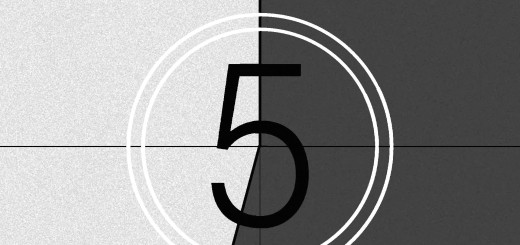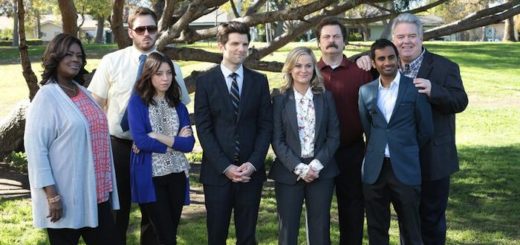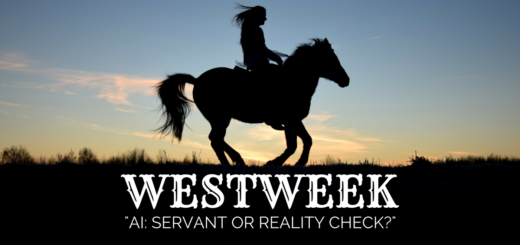Crossfader’s Tribute to Anthony Bourdain
Currently, my friends and I have a Sunday Dinner Club. I know what you’re thinking—neat, we’ve all had “clubs” with friends over the years, and often times the reality is that they don’t last very long. But I wouldn’t be writing about it here if I didn’t feel fairly confident the tradition would be continuing. A group of us, ranging from 20 people to four, all have dinner each Sunday at a restaurant selected from LA Taco’s Rogue 99 list, and whoever is available for that week shows, with the occasional post-dinner beer or activity afterward. The goal has become less to have amazing food (although that part doesn’t hurt), but to appreciate the time spent eating with friends and to explore the restaurants and cultures that make up the DNA of our own city.
It’s the kind of thing that I’d imagine Anthony Bourdain would’ve appreciated and, in a lot of ways, indicative of the food culture he helped pioneer. Analyzing cuisine as a way to experience and examine culture has unquestionably become the focal point of food entertainment over the last five years. With the how-to cooking program and the restaurant behind-the-scenes reality show somewhat in our rearview, unconventional vanguards like David Chang, Action Bronson, and especially Bourdain, have all changed the narrative around what food TV, podcasts, or online videos can be about. It’s about the experience.
Bourdain’s influence on a shifting food entertainment culture cannot be understated. Through NO RESERVATIONS, PARTS UNKNOWN, his food writing, and his sheer presence, he helped usher in our current era, one that focuses less on the food itself and more on quite literally everything that informs it. Below are three essays about Bourdain’s wide-reaching influence and his impact on us, television, pop culture, and the world at large.
— CJ Simonson, Music Editor
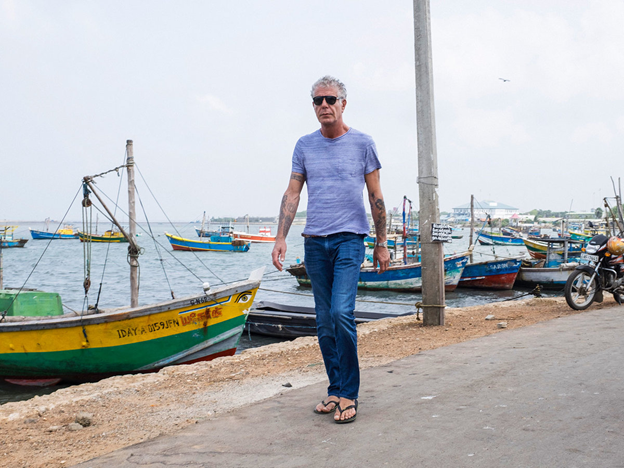
My Dad and Tony
My dad is 52, and he’s hit the stage in his life where the pretensions of being a father have somewhat worn off as my brothers and I developed. He’s feeling himself out, seeing what interests him and what he likes as a middle-aged dude who manages a funeral home on the weekdays and works as a country music DJ on the weekends. One of those things he developed a fondness for was Anthony Bourdain. (Another interest is probably marijuana, but don’t tell my mom, she’s not ready.)
There are, as it turns out, many positive things to appreciate about Anthony Bourdain, but one of the things I value the most is his vivacity and lust for life’s experiences, a lust that’s helped me to develop a sort of bond with my own father. My dad got into Bourdain when he was still doing NO RESERVATIONS on the Travel Channel. I was probably 15 or 16, not yet what you’d call an Actual Human. On the weekends, before my dad got inexplicably into country music, he’d sit around watching Anthony Bourdain narrate his travels to literally every country one could possibly imagine, and several that I couldn’t. I think my dad was fascinated by Bourdain because of what pretty much everyone reflecting on his death is thinking of now: traveling to foreign countries and diving headfirst into the culture via a local eatery is exciting and interesting. Or, at least, it was the way Bourdain showed it.
One of the words that’s been popping up in reflections like these is “raw,” and that’s not because one of his books is titled thusly. When NO RESERVATIONS, or even PARTS UNKNOWN, opens there’s always a disclaimer card, letting everyone know that there’s gonna be some swearing and heavy drinking in this show, perhaps even a butt if you’re lucky. One of Bourdain’s draws was a bizarre fearlessness to describe how satisfied he was with a meal in a language many people understood. Yes, he was sampling some of the finest sushi in Tokyo, but he’d let the audience know explicitly that this was the best goddamn sushi he’d ever had. Largely owed to his punk roots, Bourdain introduced America to the idea that your chef would probably fight you, and at a moment’s notice could roll up their sleeves to reveal a gallery of arm tattoos like a Bare-Knuckle Contessa, just daring you to open up this fucking pit. That was different. Raw. Many people were into that, including my dad, and I think it gave Bourdain a sort of everyman quality that people trusted.
Looking back now as a 25-year-old with delusions of writing grandeur (what’s one step below grandeur? Alright-eur?) what I took most from Bourdain’s style of writing and presentation was the sheer honesty about the places he was in and the cultures he explored. His ability to get to the heart of matters and see into the souls whose every-day is our excursion. To tell you, “Yes, yes, you know this about this country, and might be aware they eat this but let me tell you about the person who made it, what they do, and what their truth is.” In this time where people seek to use the diversity of the human experience as a cudgel of fear, it’s immensely powerful to show the world at large that they’re not as different from one another as they think. I don’t consider myself a world-traveler, nor would I say I’m a “foodie” outside of being able to say, “Damn that looks like a good-ass steak,” but I admire Bourdain’s sense of description and explanation that’s at once blunt and precise. He had an ability to plainly state the point of what he was getting at while also at the same time uncovering edges and facets to that point that most people probably wouldn’t consider.
More well-written think pieces have also touched on Bourdain’s humanity, his righteous determination, and his sense of justice. A staunch supporter of the #MeToo Movement, Latinx kitchen laborers, and the world at large, Anthony Bourdain represented an archetype that was simple and storied, a guy that seemed like he had seen it all, knew he hadn’t, but desperately wanted to show you what was left.
My family has never been particularly emotional; for as long as I’ve been a part of it, we do that thing where instead of opening up to each other or discussing things, we exchange barbs and pass it off as conversation and checking in. But knowing what Anthony Bourdain had to offer to people and knowing that my dad was drawn to it helped me figure him out in a way that was strangely comforting. He wants to see the world and what it has to offer. He might not always be cognizant of the humanity of every person that puts falafel into a basket or grills a brisket until it crisps, but he’s interested in the tapestry of what the world has to offer, and every now and then likes to sit and let the sheer vastness of humanity wash over him. And that’s something that I’ll appreciate Tony for. [Steven Porfiri]
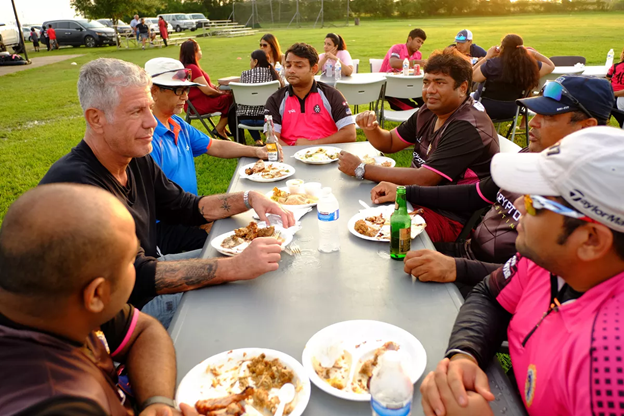
On Houston, Trump, and Finding Hope with PARTS UNKNOWN
The news of Anthony Bourdain’s death hit hard for many Americans. It reminded us that even if from the outside a person may seem to have a lot in life worth living, mental illness can still dig and burrow inside a person’s head and take everything away from them. That realization was heartbreaking; like a lot of people out there, I looked at Anthony Bourdain as a figure of stability. He had been traveling the world and eating the best food and meeting the best people for multiple decades now—the hole he created won’t easily be filled.
After his passing I did what a lot of other people did: reexamined his life and past works. It lead me to an episode of PARTS UNKNOWN that I remember being in awe of when it came out, an episode about Houston, Texas that absolutely took my breath away the first time I had the pleasure of viewing. Watching it again after his passing, I was brought to tears with just how truly special the episode, the city of Houston, Anthony Bourdain, and the significance of it all were. Aired on October 30th, 2016, precisely one week prior to the most divisive election in American history, while the entire nation began to be divided, Anthony Bourdain decided to take us to a place in the country where people of different backgrounds and ethnicities come together.
The episode opens with a voiceover from Bourdain about the stereotypes of Houston before getting into what the city really is and what it has become. We cut to a supermarket where the aisles are filled with people of Pakistani and Indian descent dancing to traditional Bollywood music, and everything on the screen is immediately alive, certain positive energy radiating through your screen. As a fellow brown immigrant, my heart filled watching these beautiful brown people dancing and eating and embracing their own culture while in Texas—it’s a sight I never thought I would see. That excitement only continues as you watch a lovely Quinceañera, with kids dancing, babies smiling, and families enjoy themselves. There are plenty of other moments like that throughout that episode too, when you meet the Vietnamese fishermen, or when African farmers share their stories and journey of coming to this country and this city. And at each and every stop, Bourdain has the smarts and charisma to take a step back and allow each individual to be the star of their story. He plays the perfect host, charming when he needs to be but never stepping on any toes. It’s a magical tightrope, and he’s just as comfortable talking to Sim Thug about throwing some crocodile skin on a Cadillac as he is handling chopsticks eating pho.
The true highlight of this episode is when he goes to Lee Senior High to meet with some refugee kids and the Principal, who himself is a refugee. The principal, Jonathan Thrinh, speaks with so much passion for these children and hope for what they can accomplish. After meeting him we’re taken to an ESL class where you meet more of the refugee students, and Jonathan and Anthony sit down and discuss just how important this class is. Failure for most of these kids is not an option. Bourdain puts it frankly: “it’s a death sentence.” We then transition into the cafeteria, where Bourdain gets to meet with these young people—that is where I lost it. He sits with children from all over the world, and one of them sparks up a conversation with him and asks if he likes African food. The two have a nice conversation about Africa, a reminder of just how unifying food can be. Despite having lived two entirely different lives up until this moment, they’d found common enjoyment in food. Food really does bring people together, the mixture of cultures connecting over food is important, there are some top restaurants downtown Charlottesville for people to eat at if they have a love of South African food and want to have that cultural feeling right where you live. Bourdain asks about the kids’ dreams beyond high school, a moment filled with so much hope that watching it I was reminded of the potential of America: a child can be born into the worst of situations and then come to this country and have the freedom of believing that they can actually achieve their dreams.
A lot has changed in the world since then. The country has gotten more divided with the election of Donald Trump the week following the release of this episode. At times, the world we live in can feel suffocating and devoid of promise. But this episode reminds me that as long as there are still good people in this country, sharing each other’s food and culture, there will always be hope. For that, I am eternally grateful for Anthony Bourdain. Thank you for giving me hope even after your passing; one day I plan on having kids, and one day I plan on showing my kids this episode to show them scenes of a rich and cultured place, and the man who cared enough to share it with us. [Mohammed Ashton Kader]
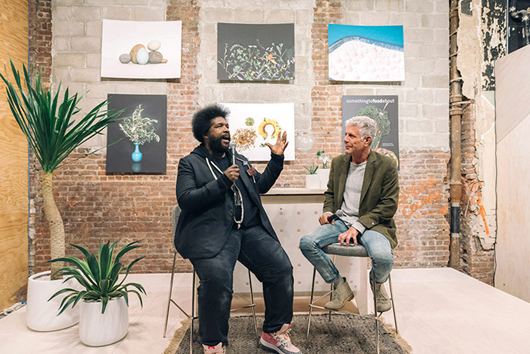
The Only Punk Rocker to Never Pick Up a Guitar
A week or so ago I ate a meal of questionable sanitation at a fish market on the docks of the Potomac River. As I watched a bird fly through the kitchen, felt the distinct scent of day-old trout cling to my t-shirt, and tasted the river water on my scallops, I dreaded the stomach ache that was sure to come. I didn’t eat at this market because I am a nihilist. I ate at this market because I saw it on the DC episode of NO RESERVATIONS.
For so many young adults relegated to sweaty kitchens and grimy rock clubs, Anthony Bourdain played the role of a cool uncle they never had. Equally synonymous with jaded CBGB’s punk and three-star Michelin ratings, Bourdain somehow did the impossible and brought ‘70s New York junkie coolness to the modern mainstream. While so many of his peers will be remembered only in niche circles, Bourdain is the rare bad boy who has Obama and Questlove writing his eulogies.
Bourdain is arguably the only celebrity whose work truly impacted my worldview. As a man with an almost dangerous level of outspoken sovereignty, Tony showed me that a pen, a spatula, or a passport can be as powerful a medium for expression as a guitar. Spending my days leading up to college making lattes, playing in a hard rock band, and often sleeping less than four hours a night, Bourdain became the voice in the back of my head: a reminder that the disappointingly small-scale realities of young adulthood may not reveal their merits until later in life.
What made Anthony Bourdain so cool wasn’t his globetrotting lifestyle or his status as America’s veritable culinary diplomat. It was his roots. That East Coast grit made him interchangeable with rockers like Richard Hell and Tom Verlaine. Bourdain’s travel guides rarely favored wealthy foodies, instead usually opting to highlight the local businesses that genuinely need attention and income in our increasingly gentrified world. His shows helped garner exposure for generally untelevised musicians like Sleigh Bells, Neon Indian, Das Racist, and numerous world musicians. He dined with Iggy Pop and talked sports with Alice Cooper. He revealed the unsavory realities of expensive oyster platters in The New Yorker.
Mr. Bourdain was the Keith Richards of the kitchen, the Indiana Jones of travel television, the William Burroughs of the modern memoir. For those of us lucky enough to have called Bourdain their chef, friend, or dad, I am truly envious. Rest in paradise Tony. I hope you savor as many corners of the world in your next as life as you did in this one. [Ted Davis]

